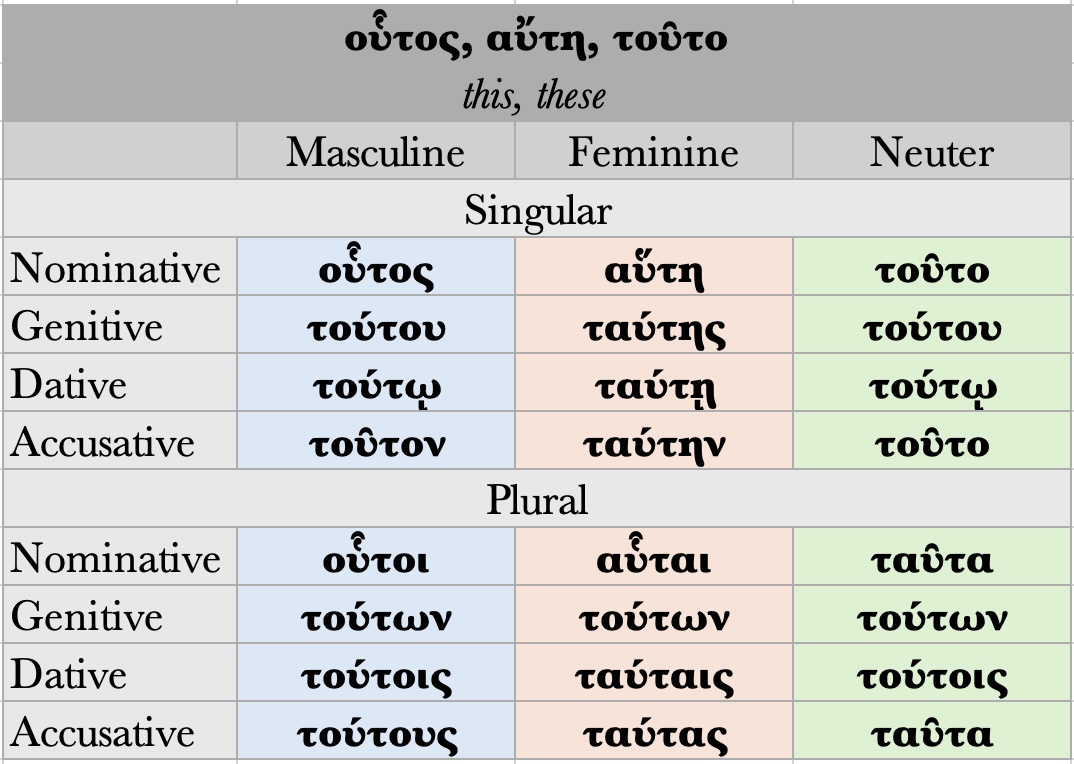27.1 We have already learned the demonstrative pronouns ἐκεῖνος ἐκείνη ἐκεῖνο (that/those) and ὅδε ἥδε τόδε (this/these). Our final demonstrative pronoun is an important one, and the most common of them all: οὗτος αὕτη τοῦτο (this/these).
The endings of this pronoun are familiar; it is inflected as a FIRST and SECOND DECLENSION pronoun. The accent falls on the PENULT, and follows persistent accent rules.
The inflection of this pronoun, however, exhibits important changes to the stem, namely:
- An initial τ– is added to the stem of all forms EXCEPT for the NOMINATIVE MASCULINE and FEMININE, both SINGULAR and PLURAL, which instead use a ROUGH BREATHING. Note that this pattern is identical to that of the definite article.
- The stem (τ)ουτ– changes to (τ)αυτ– if the case ending includes either an η or an α. Note how this changes the inflection of the neuter plural!
Memorization of this pronoun’s inflection pattern is a must. It is extremely common, and if you do not recognize a particular inflected form, looking up the word in a lexicon presents a challenge: it appears alphabetically in vocabulary lists under the masculine nominative singular form οὗτος!
Like other demonstrative pronouns, οὗτος αὕτη τοῦτο can serve as an ADJECTIVE, though always in PREDICATE POSITION.
For example:
- οἱ Ἀθηναῖοι τοὺς πρέσβεις πρὸς τοὺς Σπαρτιάτας πέμπουσι.
- The Athenians are sending ambassadors to the Spartans.
- οὗτοι τούτους τοὺς πρέσβεις πρὸς τοὺς Σπαρτιάτας πέμπουσι.
- These (men) are sending these ambassadors to the Spartans
27.3 οὗτος αὕτη τοῦτο vs. ὅδε ἥδε τόδε
Notice that the English definitions for οὗτος αὕτη τοῦτο and ὅδε ἥδε τόδε are the same: this/these. While they translate similarly in written English, there sometimes can be a subtle distinction between the two. In general (though there are plenty of exceptions):
- οὗτος αὕτη τοῦτο refers generally and unemphatically to what is already known.
- ὅδε ἥδε τόδε refers to what is near (this here table), or about to follow.
For example:
- τοῦτο λέγω.
- I am telling you this (what I just said).
- λέγω τόδε.
- I am telling you this (what I am about to say).


